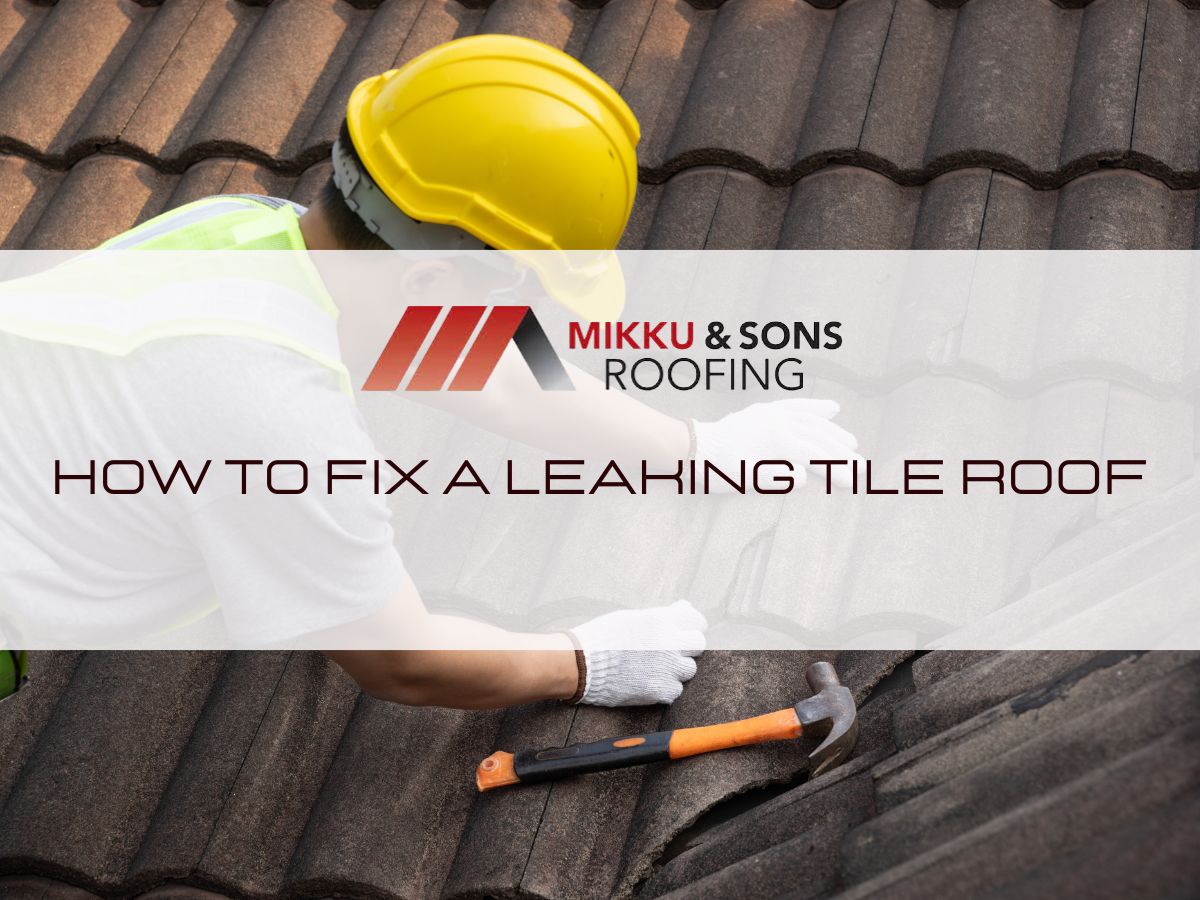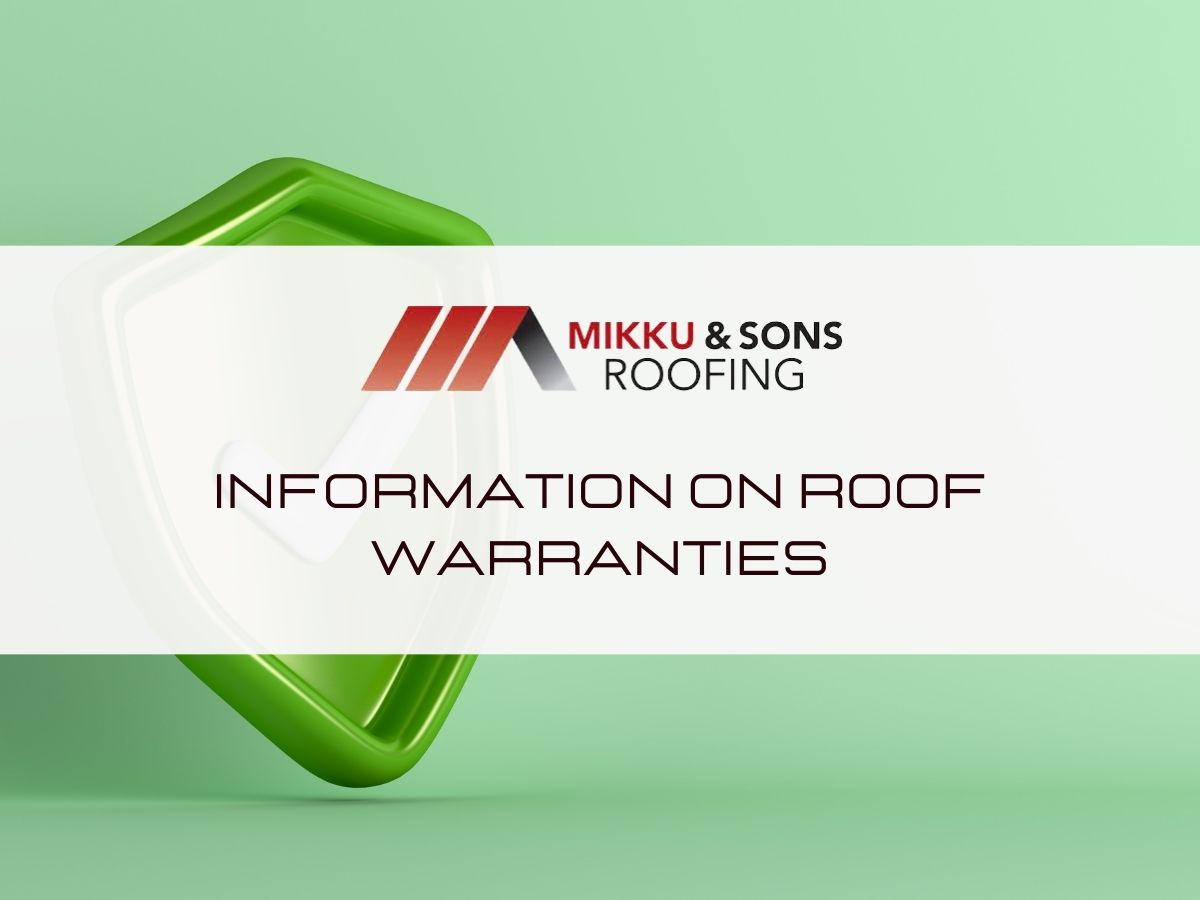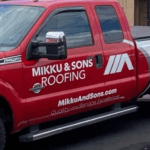

Understanding information on roof warranties is extremely important. Does the purchase of a new roof mean you get to sit back and enjoy the next 20 years with no worries? The best answer is that it depends on what you just purchased.
Most property owners tend to focus on the length of the warranty and don’t fully understand what is and what is not covered, leaving you open to some surprises later.
Understanding the information on roof warranties can help you get the most out of your coverage.
It probably isn’t a surprise to learn that information on roof warranties is usually more geared toward protecting the manufacturer than the property owner.
Roofing manufacturers spend big money to compose lots of fine print that tries to limit their own liability if something goes wrong with their roofing products.
That’s why it’s so critical that you understand the information on roof warranties before signing off on your project. Here are some good questions to ask before making the purchase:
If you haven’t purchased your new roof yet, ask for a sample of the roof warranty template and read through it, and ask for clarifications from your roofing contractor.
What are the differences between a contractor roof warranty and a manufacturer roof warranty?
This one is pretty simple. One comes from the roofing company that installed the roof and one comes from the manufacturer of the roofing materials.
Manufacturer warranties differ – some cover only the material while others cover the whole system. Most manufacturer warranties also require the contractor to perform warranted repairs for the first few years after they install the roof.
Contractor roof warranties usually don’t cover materials and only cover the actual workmanship.
Material Only Warranties typically have a lower cost than a full system warranty but will only cover manufacturing defects and premature deterioration for the term of the warranty. Material-only warranties cover the roof membrane and not other accessories such as flashings, adhesives, metal edge, etc.
It only covers the cost of materials to repair or offers credit toward buying a new membrane. These warranties don’t cover or include any labor or coverage for installation issues. They also don’t provide coverage for fixing leak repairs.
Labor Only Warranties cover only the labor required to fix a roof defect and doesn’t cover the cost of materials. They are usually offered by the roof installation contractor. This type of warranty isn’t a roof workmanship warranty and probably won’t cover repairs for installation errors.
Full System Warranties usually cover not only the material but also manufacturer-approved flashings, accessories, and metalwork used in the original installation. They typically cover the full cost, labor included, for any roof leak repairs within the warranty terms and conditions. Again, this type of warranty might not cover installation errors.
Labor Warranties cover the costs associated with repairing a defective roof within the terms of the roof system coverage. Most full system warranties include labor.
However, they don’t cover the cost of repairs associated with installation failures. That’s why the most critical step of your roof system is a good, solid, professional installation.
There isn’t much that can protect you against installation issues besides a roof workmanship warranty from the roof installer.
Also, remember that a warranty is only as good as the roofing company backing it. Make sure you have a professional, long-standing roofing contractor install your roof.
Roof Workmanship Warranties cover you against costs related to actual installation problems and errors which a labor-only warranty might not cover. However, some system warranties do cover workmanship. If your warranty doesn’t include workmanship coverage you might be able to get it directly from the installer.
A roof warranty is only as good as the company backing it. Looking for a professional, experienced roofing contractor to install your roof? Contact Mikku and Sons Roofing today, at 623-465-1068.
Again, this depends on the actual type of warranty you have. You could be surprised by what you are or are not covered for. That’s why it’s so critical to know what the roof warranty will cover before you invest in a new roof system. Always read the fine print and exceptions.
Be aware that certain warranty coverage extras such as puncture coverage or high wind coverage require certain roof materials or installation methods which may impact the cost of the roof installation itself.
